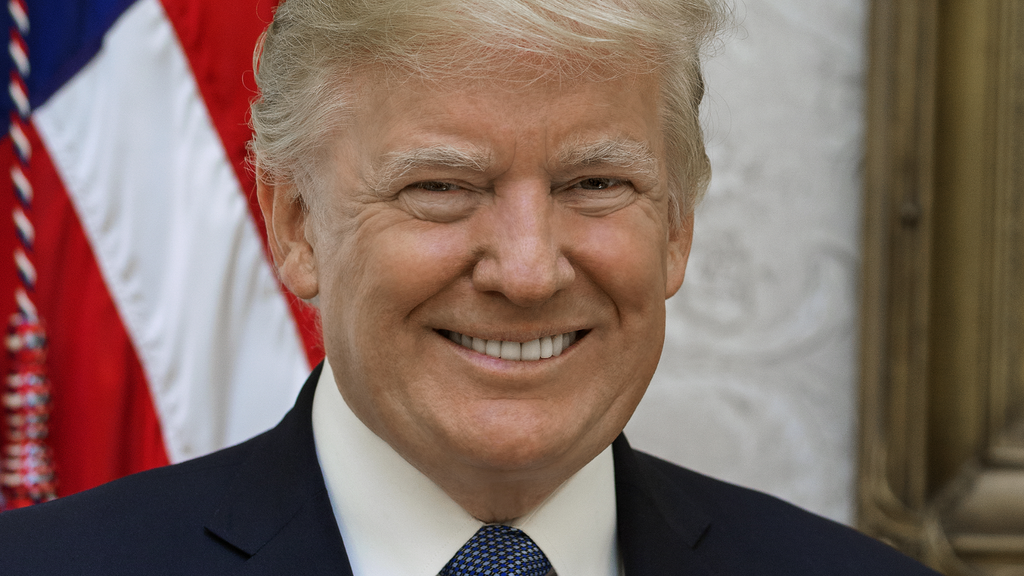Trump Policy Bill Stalls as Johnson Works to Wear Down G.O.P. Resistance

The House on Thursday was mired in paralysis, as Republican leaders toiled to put down a revolt within their ranks that had stalled their marquee policy bill and threatened to tank President Trump’s domestic agenda.
Dysfunction reigned on the House floor into the wee hours of Thursday morning, as a handful of Republicans withheld their votes to bring up the measure and Speaker Mike Johnson searched for a way to muscle through the sweeping legislation in the face of unified Democratic opposition.
The overnight revolt marked a setback for Republicans who have worked tirelessly in both chambers to finalize and pass the measure in the face of sharp internal divisions. More than four hours after the G.O.P. called a five-minute procedural vote to call up the bill, the party was still short of the votes to do so, and the vote remained open.
Mr. Johnson had spent all day Wednesday at the Capitol cajoling holdouts while Mr. Trump summoned some of them to the White House to twist their arms. But by early Thursday morning, they had yet to lock down the votes to move forward, particularly among a bloc of fiscally conservative Republicans who were dismayed by the bill’s cost and demanding changes that could derail it altogether.
“What are the Republicans waiting for??? What are you trying to prove???” Mr. Trump, clearly unhappy with how the events of the night were unfolding, wrote in a post on his social media platform. “MAGA IS NOT HAPPY, AND IT’S COSTING YOU VOTES!!!”
The legislation would extend tax cuts enacted in 2017 that are scheduled to expire at the end of the year, while adding new ones Mr. Trump promised during this campaign, on some tips and overtime pay, at a total cost of $4.5 trillion. It also would increase funding for the military and border security and cut nearly $1 trillion from Medicaid, with more reductions to food assistance for the poor and other government aid. And it would phase out clean-energy tax credits passed under President Joseph R. Biden Jr. that Mr. Trump and conservative Republicans have long denounced.
Five Republicans joined all Democrats in opposing a procedural move to bring up the bill, more than enough to defeat it if none changed their mind. Another eight G.O.P. lawmakers refused to vote at all. But Mr. Johnson refused to concede defeat, instead choosing to keep the vote open well past midnight hoping that he and Mr. Trump could persuade enough Republicans to reconsider and allow the measure to move.
Representative Keith Self of Texas, who voted against taking it up, said he was frustrated that Senate Republicans had strayed from the House’s version of the bill, making it more costly and removing important policy provisions.
“Now, House leadership wants to cram this broken bill down our throats by rushing it to the floor while in the middle of discussions, completely disregarding their promises,” he said in a social media post.
Facing tight margins in the House, Mr. Johnson could afford only a small handful of defections on the legislation. This week’s vote was the latest make-or-break moment for the speaker, who has repeatedly seen other major legislative priorities imperiled by resistance in his own ranks and teetering on the brink of defeat — only to pull out narrow victories with the help of considerable pressure from Mr. Trump.
In an interview on Fox News late Wednesday, Mr. Johnson maintained his optimism but acknowledged the process was likely to draw out, saying he would work for “as long as it takes to make sure we’ve got everybody here and accounted for and all the questions answered.”
Unlike in his prior down-to-the-wire efforts, when a flurry of negotiations and changes helped Mr. Johnson sway holdouts, the House has little room for maneuvering: Any changes to the bill would send it back to the Senate for negotiations that could drag on for weeks, potentially killing the enterprise altogether.
The bill squeaked through the Senate by the narrowest of margins on Tuesday. But the changes that senators made to cobble together support for it exacerbated deep divides among House Republicans that have plagued their efforts to advance Mr. Trump’s agenda. Fiscal conservatives were demanding even deeper cuts to rein in the deficit, while politically vulnerable lawmakers whose seats are at risk during next year’s midterm elections were wary of the biggest cuts to popular government programs.
“The Senate doesn’t get to be the final say on everything. We’ve got to work this out,” said Representative Chip Roy of Texas, a member of the conservative House Freedom Caucus. On Wednesday morning, he said there were enough Republicans “right now” who wanted to reopen the bill and were willing to blow through the July 4 recess to do so, suggesting it did not have the votes to advance.
More moderate Republicans, many of them anticipating difficult re-election campaigns in swing districts, object to Medicaid cuts approved by the Senate that went deeper than those approved by the House in May.
Members of both groups attended separate meetings at the White House on Wednesday where Mr. Trump and Republican leaders tried to persuade them to advance the bill.
Before one meeting, Representative Tim Burchett, an ultraconservative Republican from Tennessee, told reporters that he was pushing for a bill that addressed the deficit and adhered to the House’s framework on cuts to taxes and social safety net programs like Medicaid and nutrition assistance. He had not yet voted on the measure that would bring the bill to the floor.
It was not clear whether lawmakers’ resistance would hold. Conservatives have repeatedly refused to back major legislation because of its potential impact on federal deficits, only to back down under pressure from Mr. Trump. Representative Victoria Spartz of Indiana, a notoriously fickle lawmaker, voted to block the bill from coming to the floor, even as she said she ultimately planned to vote for it to pass.
With the timing of House action uncertain, Democrats raised a number of procedural roadblocks to register their opposition to the measure and slow its progress.
“When we say the Republican Party has turned into a cult, this is what we mean,” said Representative Seth Magaziner, Democrat of Rhode Island. “Our Republican colleagues are pushing a bill that would throw their constituents under the bus, a bill that flies in the face of everything they claim to stand for, all because Donald Trump wants a bill-signing photo-op by the Fourth of July.”
Emboldened by the G.O.P. rift, Democrats have made a point of projecting a united front while they railed against the bill and ramped up pressure on vulnerable Republicans.
At a news conference on the House steps attended by much of the Democratic caucus, Representative Katherine Clark of Massachusetts, the No. 2 House Democrat, called out Representative David Valadao of California, one of the most endangered Republicans. She questioned how he could back a bill that would slash Medicaid, a program that he has repeatedly voiced concern about.
Mr. Valadao had said he cannot support the level of Medicaid cuts included in the Senate measure, and he initially withheld his support from the vote to bring the bill to the floor.
But after significant discussion with Mr. Johnson and other Republican leaders, Mr. Valadao voted to open debate and clear the way for the bill’s final passage.
Catie Edmondson contributed reporting.
What's Your Reaction?
 Like
0
Like
0
 Dislike
0
Dislike
0
 Love
0
Love
0
 Funny
0
Funny
0
 Angry
0
Angry
0
 Sad
0
Sad
0
 Wow
0
Wow
0





![Cyber Africa Forum : le Bénin au cœur de la résilience numérique [Business Africa]](http://static.euronews.com/articles/stories/09/33/14/38/640x360_cmsv2_675083a0-3d42-5b59-aba8-cbd15242e6d9-9331438.jpg?1750158236#)
































